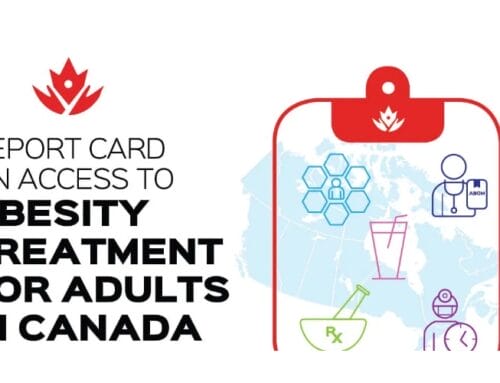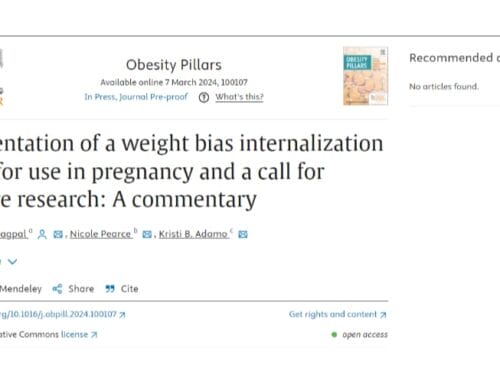Obesity Canada is hard at work this summer continuing our mission of improving the lives of Canadians living with obesity through research, education and advocacy. Much of our efforts focus around our Clinical Practice Guidelines and the work needed to now move these evidence-based recommendations into practice across the country. This includes CALIBRE, our new professional development for primary care physicians (coming soon), advocating for effective policy with governments, and a number of ongoing research projects.
This past month saw our Connected Conversations webinar series focus on a very important topic for many of our community members: denial of care based on BMI. This episode focused specifically on orthopedic surgery with our guest Dr. Chaudhry, however many of the themes are common with other conditions that often see BMI cutoffs used to justify denial of treatment.
While there were a number of interesting points brought up in the discussion, for me what stood out is the fact that there is no standard of care. One doctor can deny a treatment and suggest that risk is too high, while another acknowledges the risk, but is clear that the elevated risk does not justify withholding treatment.
Dr. Chaudhry explained that, while the research suggests that people with a higher BMI face double or even triple the post-surgical infection rate compared with someone with a “normal” BMI, in practical terms the risk remains low. If the risk of infection post surgery for a normal BMI individual is 0.25%, double that risk and you are still only at 0.5% risk of infection. Even 10 times the risk is still only 2.5%. Generally, it’s not a justifiable reason to deny care, especially given the impact on quality of life that treatment can have.For someone with constant pain and limited mobility, are these numbers representative of a risk that is so significant that it is worth doing nothing and suggesting to the patient that they have to live with it? I think at the very least it is worth a conversation and a joint decision making process between the patient and healthcare providers.
This webinar, and the stories that are regularly shared with us from people who have experienced this bias first hand, make it clear that more individuals need to ask questions. Make health professionals justify their decisions and call them out when they are demonstrating dangerous and hurtful bias. Being able to self-advocate is not always easy, but sadly is sometimes necessary. It can be helpful to be informed and to be prepared, and Obesity Canada can help.
By joining our OC-Connect community, not only will you have access to evidence-based information and a community of peers who can support you, you can also take advantage of our Advocacy 101 course – a series of online learning modules. At the end of this course, which you complete at your own pace, you will be armed with the information you need to know about obesity as a chronic disease, Obesity Canada and the work we are involved in and resources we have available, and about advocating for yourself or for others. Join us in being part of the movement to end weight bias and change how obesity management looks in Canada!
Ian Patton, Director of Advocacy and Public Engagement






